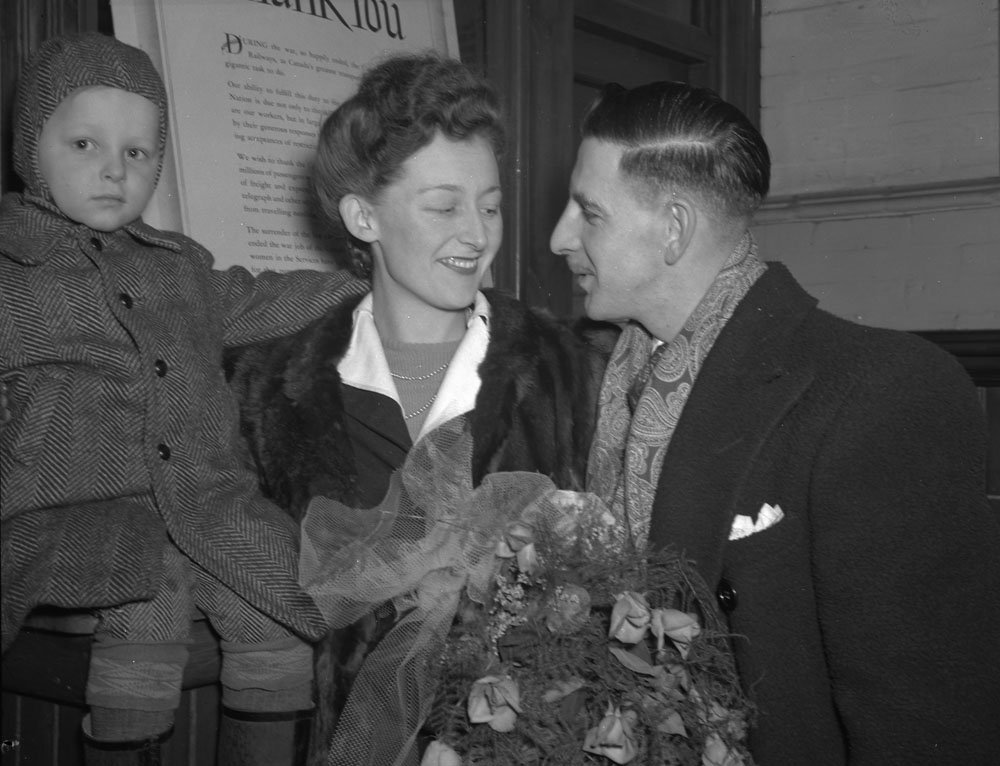Who We Are
The Canadian War Brides and Families Corporations is dedicated to preserving and celebrating the extraordinary legacy of the women who married Canadian servicemen during World War I & World War II and emigrated to Canada to build new lives. These brave women, known as War Brides, formed a unique and vital chapter in Canada's history, embodying resilience, love, and courage in the face of the profound challenges brought on by wartime and post-war realities.
History
2010 – Saskatoon,SK – Final Reunion of the Saskatchewan War Brides Association. Jean Fells wanted to keep the War Bride stories alive. A sign-up sheet was made available at this Reunion for people to sign who were interested in forming a War Brides & Families group to encompass all provinces.
2011 – Ramada Hotel in Saskatoon SK, the 1st “official” meeting was held to determine if there was sufficient interest to create a Canadian Association. Jean Fells took on the task of getting the new Association registered with the Saskatchewan Corporate Registry and in November
2011 - The Canadian War Brides & Families Corporation became an official entity. At the 1 st AGM at the Ramada Hotel in Saskatoon SK in 2011, nominations were held for executive positions and 7 people volunteered to be part of the Executive
2012 – Reunion – Bessborough Hotel – Saskatoon SK
2013 – Reunion – Empress Hotel – Victoria BC
2014 – Reunion – Delta Armouries Hotel – London ON
2015 – Reunion - Coast Calgary Plaza Hotel – Calgary AB
2016 – Reunion – Westin Nova Scotian Hotel – Halifax,NS
2017 – Reunion – Temple Gardens – Moose Jaw SK
2018 – Reunion – Chateau Louis – Edmonton AB
2019 – Reunion – cancelled – Covid 19
2020 – Reunion – cancelled – Covid 19
2021 – Reunion – Calgary AB
2022 – Reunion – Hotel Halifax – Halifax, NS
War Brides & Their Families: A Remarkable Journey
Between 1942 and 1947, more than 44,000 women—mostly British, along with Dutch, Belgian, and French—journeyed to Canada to join the Canadian servicemen they married during the Second World War I 1. Traveling alongside some 22,000 children, these women left everything familiar behind to begin life in a new country.
Their journey often began at bustling wartime ports like Liverpool and ended at Halifax’s Pier 21, where war brides disembarked and boarded special trains that carried them across the country2. However a few flew across the Atlantic Ocean in repurposed bomber planes which became passenger planes and, after refuelling in Gander, Newfoundland, the Brides landed in Montreal to be met by Red Cross ladies who got them to the correct trains in order to continue their journey. The expedition was not easy—many arrived before their husbands, faced language barriers, homesickness, and cultural differences—but their resilience helped shape the communities they joined.
By the late 1940s, nearly 48,000 war brides and their children had become part of the Canadian story, representing one of the largest and most unique waves of immigration in our country’s history3.
Unlock exclusive access to our members-only section—featuring extended photo galleries, personal war bride stories, archived newsletters, and more. Join our community and help preserve this incredible chapter of Canadian history.
Members Only





Contact Us
Interested in sharing your story or learning more?
Please share any or all:
Your parent’s stories
Your remembrance(s) of growing up with a War Bride Mother
Remembering your Mother
See if any family members or other relatives/friends have stories about your Mother to share
Please ask any question(s) you may have! We will try to provide answers or background information to you. We feel the history and stories of these brave women needs to be kept alive as an important part of our Canadian identity.
Our Valued Supporters:
The Royal Canadian Legion Calgary Centennial Branch #285
The Ladies Auxiliary of Calgary Centennial Branch #285
The Royal Canadian Legion Hugh Farthing Memorial TVS Branch 52
The Don Ethell Chapter of Calgary Alberta in United Nations Peacekeepers
Canvet Publications Ltd.
Without whom we would not be able to keep Canadians informed about this important historical event.


